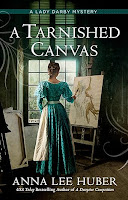I received this book for free from Netgalley. That did not influence this review.
Wow! Bring the House Down by Charlotte Runcie is a page-turner.
Sophie is a junior culture writer for a big London newspaper. She is on assignment in Edinburgh for the Fringe Festival, along with the paper’s top theater critic, Alex Lyons. They are sharing a rental flat provided by the company. They are work friends, not much more, when the real story begins.
Alex went to a one-woman show, put on by a young actress, Hayley Sinclair, about climate change and the patriarchy. The show was awful. He wrote a biting review and gave it one star. He filed it with his editor, then went to a bar for a few drinks. There, he met Hayley, also alone, having a drink. They hooked up. He didn’t tell her who he was, or that he had just written a potentially career-ending review of her show. She discovered this the next morning, reading the review in front of Sophie in the flat.
But Hayley turns the tables by re-inventing her show as The Alex Lyons Experience. She tells the audience what happened, reading aloud from the review, and encouraging women to tell their own stories about horrible men, particularly if the horrible man was Alex.
Over the course of the Festival, as more and more women speak up at the new show and on social media, readers (and Sophie) see just what a misogynistic player Alex is, and how shallow and unrepentant he is. Only Sophie can see hints of vulnerability, and she makes readers see them too. It doesn’t make him any more likeable, but it does make him understandable.
Even recognizing his faults, Sophie is drawn to him. The more he confides in her, the more she learns about the forces that have shaped him, the more guiltily sympathetic she feels. And Sophie examines her own life as well. She desperately misses her mother, who died too young. She has conflicted feelings about her husband. She misses her carefree younger self and her one-year-old son in roughly equal amounts. She wonders if she is cut out to be a critic when she wants everyone to like her.
Runcie does a superb job of taking the reader into the heart of the Fringe Festival while also doing deep dives on the psychology of Sophie, Alex, and Hayley. The tension in the story keeps ratcheting up as Alex digs himself into a hole he can’t possibly climb out of, and, as a reader, I’m not sure that I want him to.
A gripping novel. Highly recommended!




















